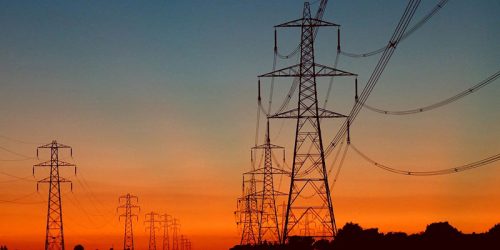The prerogative to conduct forensic audit of the Independent Power Plants (IPPs) rests with the government, said the Power Division, adding under no circumstances it gave up on any of its right during lengthy negotiations towards a reaching a final agreement with them.
In a recent meeting, Cabinet Committee on Energy (CCoE) Chairman Asad Umar sought clarification whether any right of the government had been compromised and affected including forensic audit of the IPPs.
The Power Division noted that no right of the government would be affected. The IPPs are fully cognizant of this fact and there is no such impression either explicit or implicit that the government has given up on any of its rights, it said.
The Power Division had been asked to make the format of presentation understandable while presenting the case to the federal cabinet for approval.
It apprised the CCoE that the Implementation Committee had agreed the payment mechanism with 44 IPPs to clear the outstanding payables as of November 30, 2020 amounting to Rs399 billion.
As per the payment mechanism, the said amount will be given in two installments. First installment will be 40% of the said payables and will be given 1/3rd in cash, 1/3rd in five-year Sukuk and 1/3rd in 10 years PIB bonds at floating rate of T-Bill +70 bps.
The remaining 60% of amount will be paid within six months of the first installment in almost the same manner.
The Power Division had requested the Economic Coordination Committee to consider and approve the report of the Implementation Committee. The agreements made with the IPPs were appended with the report.
During the ensuing discussion, the Power Division secretary maintained that the matter was also discussed in the meeting of CCoE on February 4, 2021.
While it was decided to reconsider the same summary in CCoE meeting, which was scheduled for February 8, 2021, two more IPPs initialed the agreements.
Consequently, 46 out of total 47 IPPs initialed the agreements, therefore, payables to IPPs stood at Rs403 billion correspondingly.
The Power Division secretary also informed the forum that the figures of 46 IPPs instead of 44 and Rs403 billion instead of Rs399 billion had been correctly reflected in the summary submitted by the Power Division to the ECC.
The Arbitration Submission Agreement option was provided to cater for all IPPs under the 2002 Power Policy, instead of referring the matter to Nepra, for amicable resolution of the issue.
Certain IPPs out of 12 under the 2002 Power Policy, which had agreed in the MoUs to refer the case of Excess Profitability to Nepra, were reluctant for the incorporation of the same into the master agreements.
The corresponding clause 9 of the MoU, which is the same for all 12 IPPs is reproduced as “in order to assess if IPPs have made any excess profits, the reconciled numbers between the committee and the IPPs shall be submitted to Nepra.
As a legal body vested with the authority for tariffs, Nepra shall hear and decide this matter in accordance with the 2002 Power policy, tariff determinations and PPAs and provide for a mechanism for recoveries, where applicable.”
The Implementation Committee discussed the issue at length with the IPPs and agreed with the alternate option of the Arbitration Submission Agreement for all IPPs under the 2002 Power Policy.
Furthermore, the IPPs have agreed that the arbitration will be binding and final as far as the dispute of excess profitability is concerned.
One paramount consideration to agree with locally-based arbitration was to avoid the situation where the IPPs could have eventually taken the dispute to the LCIA (London Court of International Arbitration), and
further to avoid declaration of Government of Pakistan Event of Default: Under the Implementation Agreement(s), which could potentially have resulted in significant loss to the public exchequer.





